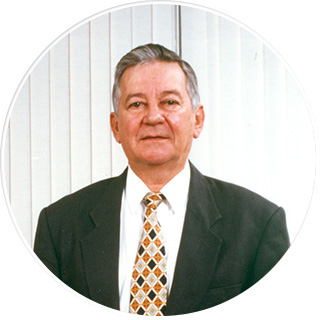Museum
Founders

Founders
Werner Ricardo Voigt, Eggon João da Silva and Geraldo Werninghaus successful business journey started on September 16th, 1961, when they founded Eletromotores Jaraguá. Years later, the company established by an electrician, an administrator and a mechanic received a new name, Eletromotores WEG SA. The name WEG came from the founders´ initials.
At first, WEG manufactured electric motors only. However, in the 1980s, the company started to expand, manufacturing electrical and electronic components, industrial automation products, power and distribution transformers, liquid coatings, powder coatings and electrical insulating varnishes. The company gained recognition as a supplier of complete industrial electrical systems and not as a motor manufacturer only.
(Português) Hoje, a WEG atua em cinco linhas principais: Motores, Energia, Transmissão & Distribuição, Automação e Tintas. Presente em mais de 100 países a companhia atende todos os segmentos da indústria, incluindo petróleo e gás, mineração, infraestrutura, siderurgia, papel e celulose, energia renovável, entre muitos outros. Com mais de 29 mil colaboradores a empresa atingiu faturamento líquido de R$ 6,8 bilhões em 2013.
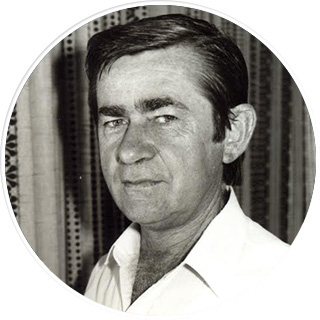
Werner Ricardo Voigt (1930-2016)
Nascido no dia 8 de setembro de 1930, descendente de imigrantes alemães vindos da região de Düsseldorf, Werner Ricardo Voigt sempre teve a eletricidade como uma preocupação contínua na cabeça. Desde menino, Werner sempre soube que fios, dínamos, geradores e bobinas fariam parte de sua vida. Aos seis anos já demonstrava toda a sua inclinação para os assuntos da eletricidade, produzindo maquetes completas de serrarias.
Na mesma época de infância, Werner também foi despertado para os prazeres da leitura através do avô, construtor e professor, que recebia inúmeros livros e revistas técnicas da Alemanha. Outro mestre que exerceu forte influência em sua formação foi Purnhagen, eletricista e músico que o orientou profissionalmente a partir dos 14 anos de idade, tanto na área técnica quanto na artística, vindo Werner a se tornar um exímio clarinetista.
Adolescente, foi morar em Joinville, onde estudava no SENAI e trabalhava na oficina de Werner Strohmeyer. Aos 18 anos foi convocado para servir ao Exército em Curitiba/PR. Após o serviço militar, conseguiu ser um dos dois soldados selecionados para frequentar a Escola Técnica Federal, onde se especializou em radiotelegrafia e eletrônica.
No retorno a Joinville, passa a trabalhar na Empresul, concessionária de energia elétrica, onde permanece por dois. Aos 23 anos de idade, atua na oficina de “Kanning & Weber”. Em setembro de 1953, contudo, Werner inicia seu próprio negócio, instalando pequena oficina no centro de Jaraguá do Sul.
A oficina evoluiu, sempre prestando serviços gerais, desde equipamentos domésticos, até em residências e fazendas, no interior do município. Além disto, Werner era o assistente quase exclusivo para a manutenção de cerca de duas dezenas de veículos motorizados que então circulavam em Jaraguá e região.
Montava rádios e radiolas, fabricava e instalava geradores, realizava bobinagens, orientava a instalação de rodas d‘água, enfim, a oficina de Werner atendia a praticamente todas as necessidades na área. E os serviços apareciam sempre em maior quantidade, tanto que foi contratando novos auxiliares. Em 1961, a oficina contava com oito colaboradores.
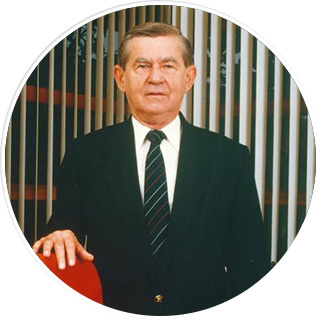
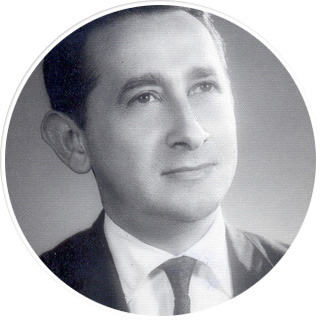
Eggon João da Silva (1929-2015)
Nascido em 1929, no que é hoje o município de Schröeder, norte de Santa Catarina, Eggon João da Silva começou a trabalhar cedo, aos 13 anos, como “faz tudo” em um cartório em Jaraguá do Sul. Em 1957, depois de 14 anos no principal banco do Estado, torna-se sócio da João Wiest & Cia. Ltda., uma firma especializada na produção de canos de escape para veículos, então com 8 funcionários. Quatro anos depois, Eggon deixa a empresa, que já conta com 150 funcionários, para enfrentar o maior desafio de sua carreira.
Em abril de 1961, juntamente com Werner Ricardo Voigt e Geraldo Werninghaus, funda a WEG, que na época produzia apenas motores elétricos. Até 1989, Eggon participou diretamente dos destinos da empresa, levando-a a figurar entre as maiores do setor, com participação destacada no mercado nacional e internacional.
Do motor elétrico, a WEG começa a diversificar sua produção, passando a produzir sistemas elétricos industriais completos, incluindo geradores, transformadores, componentes e sistemas de automação industrial.
Mas a trajetória de Eggon João da Silva não está ligada apenas à WEG. O empresário, fez parte dos conselhos de quatro grandes empresas – Oxford, Tigre, Marisol, e Perdigão, tendo nesta última, inclusive, exercido a função de diretor presidente entre 1994 e 95, momento em que cumpriu uma dura missão de recuperação financeira da empresa. Após esse período foi presidente do Conselho Administrativo até abril de 2007, quando passou seu cargo para o filho Décio da Silva.
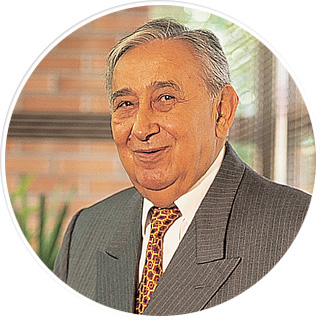
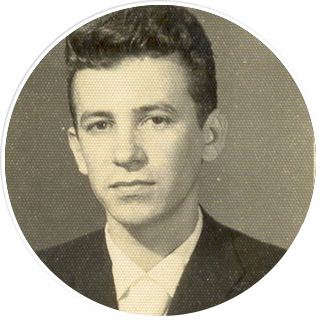
Geraldo Werninghaus (1932-1999)
Natural de Rio do Sul (SC), Geraldo Werninghaus começou sua carreira profissional na Werninghaus & Filhos, oficina de seu pai em Joinville. Aos 14 anos, aprendiz, o universo de tornos e fresadoras, graxas e estopas já estava impregnado em seu cotidiano. Educado na rígida disciplina alemã, com forte influência paterna, de duas gerações dedicadas ao mesmo ofício, cedo descobriu que tinha a mesma vocação.
Dos 14 aos 27 anos, Geraldo Werninghaus realizou o aprendizado livre dos segredos da mecânica, passando ainda por empregos fora do olhar paterno. Esteve em Blumenau, nas Indústrias Vahldick. Em 1951 serviu ao exército, ainda em Blumenau. Aos 20 anos, voltou a trabalhar com o pai, em Joinville.
Deixou a Werninghaus & Filhos em 1961, para fundar a WEG em Jaraguá do Sul, junto com Werner Ricardo Voigt e Eggon João da Silva. Participou ativamente do desenvolvimento da empresa, contribuindo para torná-la uma referência no Brasil.
Pessoa dedicada ao trabalho e à comunidade, ao deixar as atividades executivas diretas na WEG, passando ao Conselho de Administração em 1989, Geraldo iniciou nova e promissora carreira pública. Foi vereador, deputado estadual e finalmente prefeito de Jaraguá do Sul, com mandato que se encerraria em 31 de dezembro do ano 2000.
